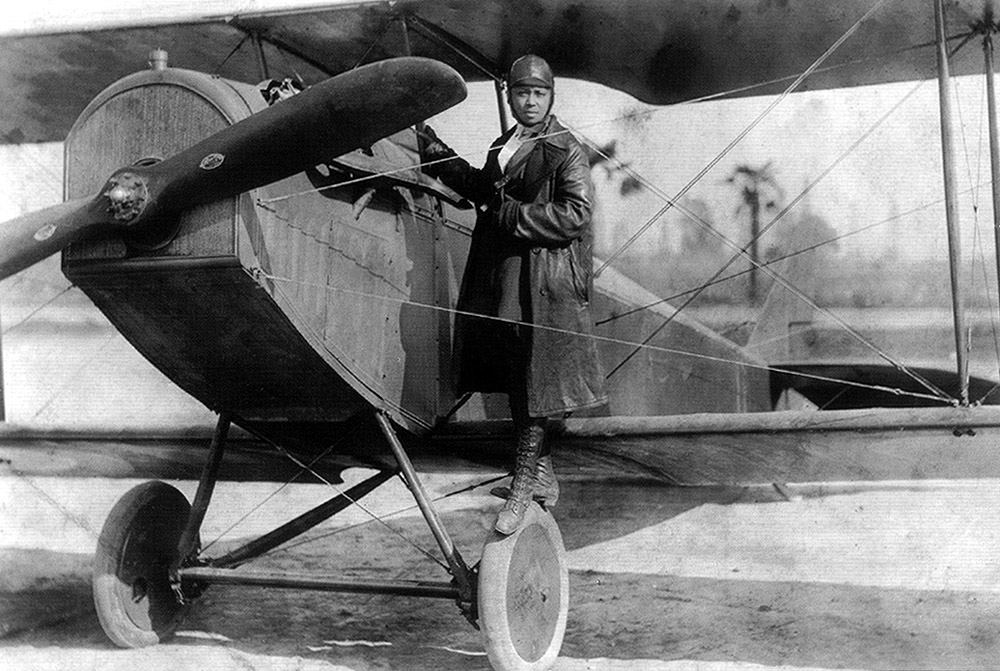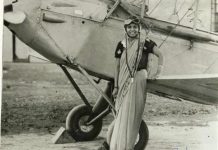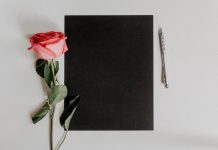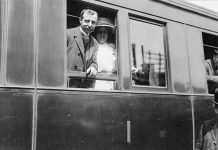If during the 1920s becoming a pilot was quite an undertaking for any woman, imagine what would have been like for an African-American woman.
Bessie Coleman was born in 1892 in one of the worst places for a woman like her to pursue her ambitions: Texas, a secessionist state par excellence.
The thirteenth daughter of a family of sharecroppers, Bessie didn’t have an easy childhood at all. She would walk more than 6 kilometres each morning to go to a school for black people only, and every year on a regular basis she had to stop going to school for the cotton harvest. Even her father, tired of the living conditions in Texas, left his family to go to the more open-minded Oklahoma.
Despite the difficulties, Bessie, who was stubborn, a dreamer and determined, decided to demolish racial barriers rather than accepting the consequences of such barriers.
In 1920, Bessie realised that she would have to leave the United States in order to learn how to fly. She was admitted to the Société des Avions Caudron flight school in Le Crotoy, France, and she practised with a Nieuport-82 biplane. She was the only African-American student in her class.
Just one year later, on 15th June 1921, Bessie Coleman became the first African-American woman to earn a pilot licence.
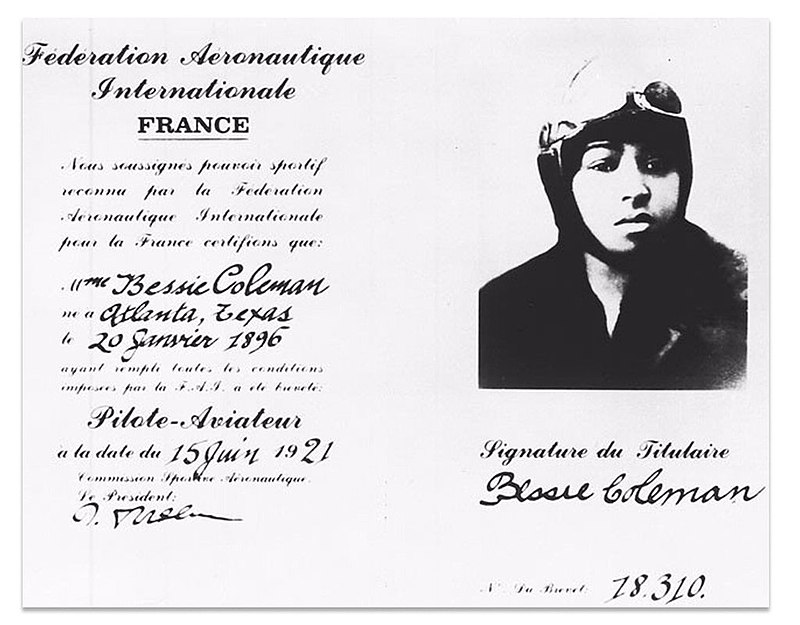
At that time, civil aviation was not considered a field in which someone could have career ambitions. Coleman thus decided to pursue her dream by learning how to do flying stunts, but she had to go back to France in order to become an expert in Cuban eights, corkscrews, loop-the-loops and flying close to the ground. Thanks to her spectacular manoeuvres, Bessie became famous in the United States too, but she had to give up on her project to found a flight school for African-Americans, as she wrote in a letter to her sister. It was simply too ambitious at that time.
Bessie Coleman died when she was only 34, but her memory remains alive today. As a matter of fact, every 2nd May Chicago celebrates Bessie Coleman Day. There is also a street near O’-Hare airport named after her.
Thank you, Bessie, from all women.

